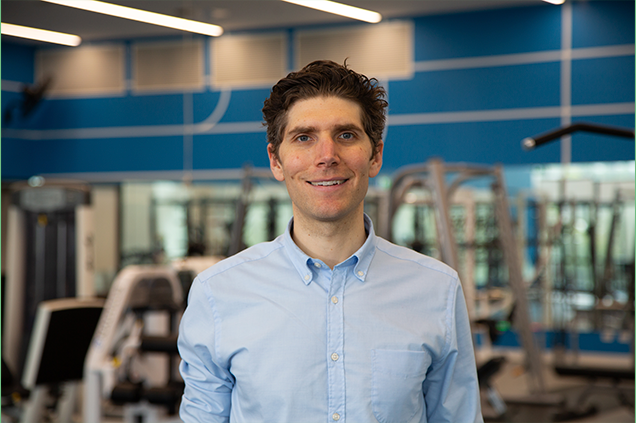Summary
- It’s estimated that rugby players have the highest concussion risk of all youth athletes.
- Adult professional rugby players are more likely than not to experience a concussion every 25 games.
- Dr Spencer Roberts is assessing how healthy sleep may be key to reducing concussion risk in collision sports.
Australians love collision sports, whether it’s Aussie Rules, Rugby League or Rugby Union.
Yet the adrenaline rush on the field may mask a significant cost – the heightened risk of concussion among players, especially young athletes.
Recent studies reveal rugby players aged between 15 and 24 years face a higher concussion risk than their peers in other collision sports. And at the professional level, rugby players are more likely than not to suffer a concussion after 25 games.
Many of the dangers associated with concussion in collision sports may be long term, as there is some evidence that repeated head impact exposure may increase risk of later-life mental illness and brain diseases, such as chronic traumatic encephalopathy (CTE).
Growing concern around concussion in sport prompted the February release of new concussion guidelines for junior and community sports. Developed by the Australian Institute of Sport (AIS) in cooperation with Sports Medicine Australia, doctors and physiotherapists, the guidelines recommend athletes wait at least 21 days before returning to competition following a concussion.
Is there a role for sleep in preventing concussion?
Dr Spencer Roberts, a lecturer in Human Physiology from Deakin’s School of Exercise and Nutrition Sciences and the Centre for Sport Research within the Institute for Physical Activity and Nutrition (IPAN), is leading research to identify the potential link between healthy sleep and reduced concussion risk in collision sports.
Dr Roberts’ initial pilot project in 2023 assessed how sleep – assessed using head-worn EEG devices – influenced the concussion risk of Australian Rules footballers. Head impacts were monitored throughout the season using instrumented mouth guards.
Early findings suggest that players who were concussed recorded poorer habitual sleep quality prior to their concussion than those who were not concussed.
This year, Dr Roberts is continuing this work in adult Australian-rules footballers, and he is also launching a new study in youth rugby players.
‘Youth collision sport athletes are exposed to head impacts during a critical phase of brain development, so there is a real need to examine youth athletes separately to their adult counterparts,’ Dr Roberts says.
‘It’s still early days for this research, but If the data continue to show that poor sleep increases concussion risk, it will open the door for individualised prevention strategies to improve sleep and protect players’ long-term health,’ he says.
Dr Roberts has secured a $1000 travel grant from Melius Consulting to present his research to world-leading brain injury scholars at a University of Cambridge scientific conference.
Watch Dr Roberts explain his important concussion research.
About Dr Spencer Roberts
 Dr Spencer Roberts, a lecturer in Human Physiology from Deakin’s School of Exercise and Nutrition Sciences – the #1 sport science school in the world – and Centre for Sport Research within the Institute for Physical Activity and Nutrition (IPAN).
Dr Spencer Roberts, a lecturer in Human Physiology from Deakin’s School of Exercise and Nutrition Sciences – the #1 sport science school in the world – and Centre for Sport Research within the Institute for Physical Activity and Nutrition (IPAN).
- Researcher focused on characterising athletes’ sleep behaviours, and examining the value of sleep for mitigating the risks and consequences of sport-related concussion
- Associate consultant at Fatigue Management and Sleep Solutions Australia.
The text of this article is licensed under the Creative Commons Attribution (CC BY) 4.0






